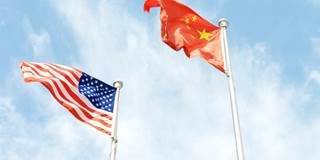The Trade Wars of Codependency
Whatever the source, the conflict phase of codependency is now at hand. China is changing, or at least attempting to do so, while America remains stuck in the time-worn mindset of a deficit saver with massive multilateral trade deficits and the need to draw freely on global surplus saving to support economic growth.

NEW HAVEN – Codependency never ends well in personal relationships. Judging by the ever-escalating trade war between the United States and China, the same is true of economic relationships.